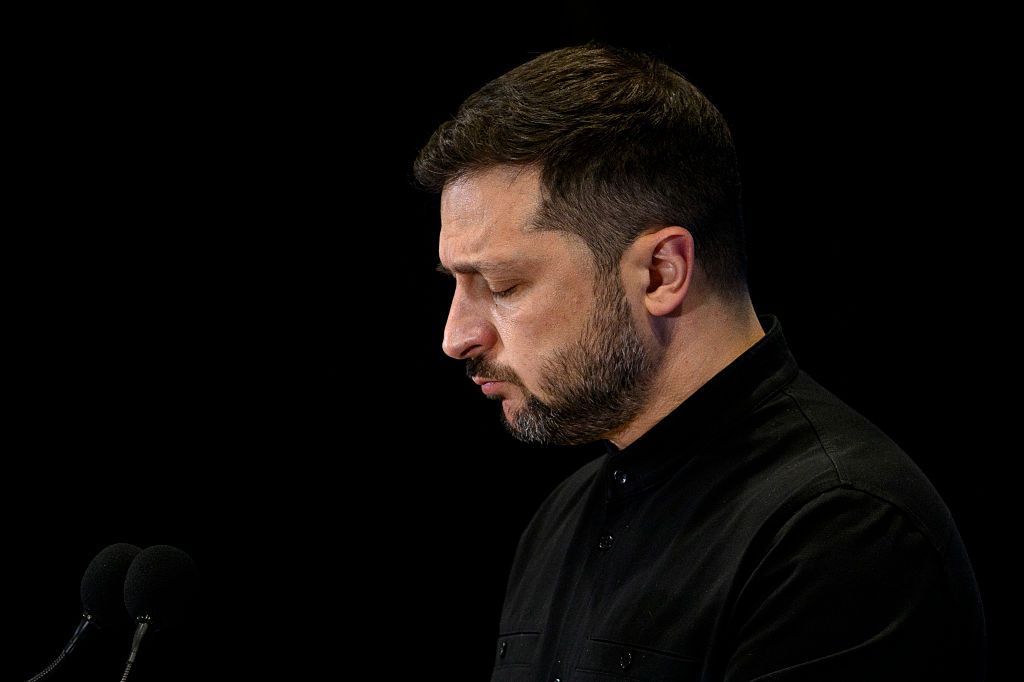Under pressure, Kyiv likely to appoint previously blocked candidate to economic crimes bureau

Facing backlash for undermining two anti-corruption agencies last week, Kyiv may now have to appoint a candidate to lead the country's economic crimes bureau, after blocking the reformer for weeks.
Earlier this month, Ukraine's Cabinet of Ministers rejected an independent commission's nominee to lead the Bureau of Economic Security over alleged ties to Russia in a move observers called unlawful and politically motivated.
But now, after domestic and international outcry over a law passed last week granting the Prosecutor General sweeping control over the National Anti-Corruption Bureau (NABU) and the Specialized Anti-Corruption Prosecutor (SAPO), Kyiv is facing mounting pressure to honor its anti-corruption commitments.
The European Commission on July 29 called on Ukraine to appoint the nominated director "swiftly," saying doing so was "essential to advance (the bureau's) reform and ensure its independent and effective functioning," an EC spokesperson told the Kyiv Independent.
The spokesperson added that the appointment is part of Ukraine's broader reform commitment under the EU accession process. Ukraine is also required to select a new head of the bureau by the end of this month as part of its $15 billion loan program with the International Monetary Fund.
"The IMF has been very understanding when it comes to Ukraine — but the kind of confidence-sapping moves like those of last week leave a trace that even backtracking on NABU and SAPO won't entirely erase," Roman Washchuk, Ukraine’s business ombudsman, told the Kyiv Independent.
"Things that would have been glossed over may now be taken into account."
Three international members of the bureau's selection committee appointed anti-corruption official Oleksandr Tsyvinsky on June 30 to fill the vacant position before the July 31 deadline set by the EU and IMF. The government overruled that decision, citing Tsyvinsky’s father’s Russian citizenship as a security concern.
Tsyvinsky — who is known for exposing schemes involving illegal land seizures in Kyiv, holds clearance for state secrets, and has passed special vetting — has over 20 years in law enforcement, including nearly a decade at NABU.
Despite calls among Ukrainian lawmakers and members of civil society to appoint Tsyvinsky, which the government was required to do within 10 days of his nomination according to the laws governing the bureau, the Cabinet of Ministers doubled down on its decision, with Prime Minister Yuliia Svyrydenko publicly defending the government's right to reject a candidate for security reasons.
"Before these events related to NABU and SAPO, there were some doubts that maybe (Tsyvinsky) was just an isolated case. But after, it became very clear that (the government) just doesn't want him because he is an independent person," Olena Trehub, the head of the NGO the Independent Anti-Corruption Commission (NAKO), told the Kyiv Independent.
"They used exactly the same pretext to attack NABU and SAPO — saying they are afraid of Russian infiltration."
According to opposition lawmaker Yaroslav Zhelezniak, it was President Volodymyr Zelensky who blocked Tsyvinsky’s appointment, due to concerns that his circle could be prosecuted. Observers widely attributed the government’s attempt to weaken NABU to its investigations involving members of Zelensky’s inner circle.
The bureau, established in 2021 to investigate white collar crimes, has faced allegations ranging from inefficiency to pressuring and extorting businesses. To promote good governance, its bylaws require a six-member selection committee — three appointed by the government and three international experts, with the latter holding final decision-making authority.
International committee member James Wasserstrom told the Kyiv Independent he stands by his decision to nominate Tsyvinsky and believes he has a high chance of being appointed.
It's unclear what decision the government will take. The prime minister has not walked back her earlier defense of rejecting Tsyvinsky’s nomination. Trehub says she is concerned that could signal the government is committed to pushing for another selection competition.
But international partners may not be so keen to fund another competition if the result will just get overturned, Washchuk said. The previous selection commission was funded by the United States Agency for International Development (USAID), which has since been heavily curtailed under U.S. President Donald Trump.
"You would have to be a pretty masochistic international to want to go through this again, knowing that at the end, for some random reason which cannot be revealed to you, the outcome will be overturned," Washchuk said.
But Zhelezniak is now confident the government has "no other option" but to appoint Tsyvinsky.
"They have to do it."












